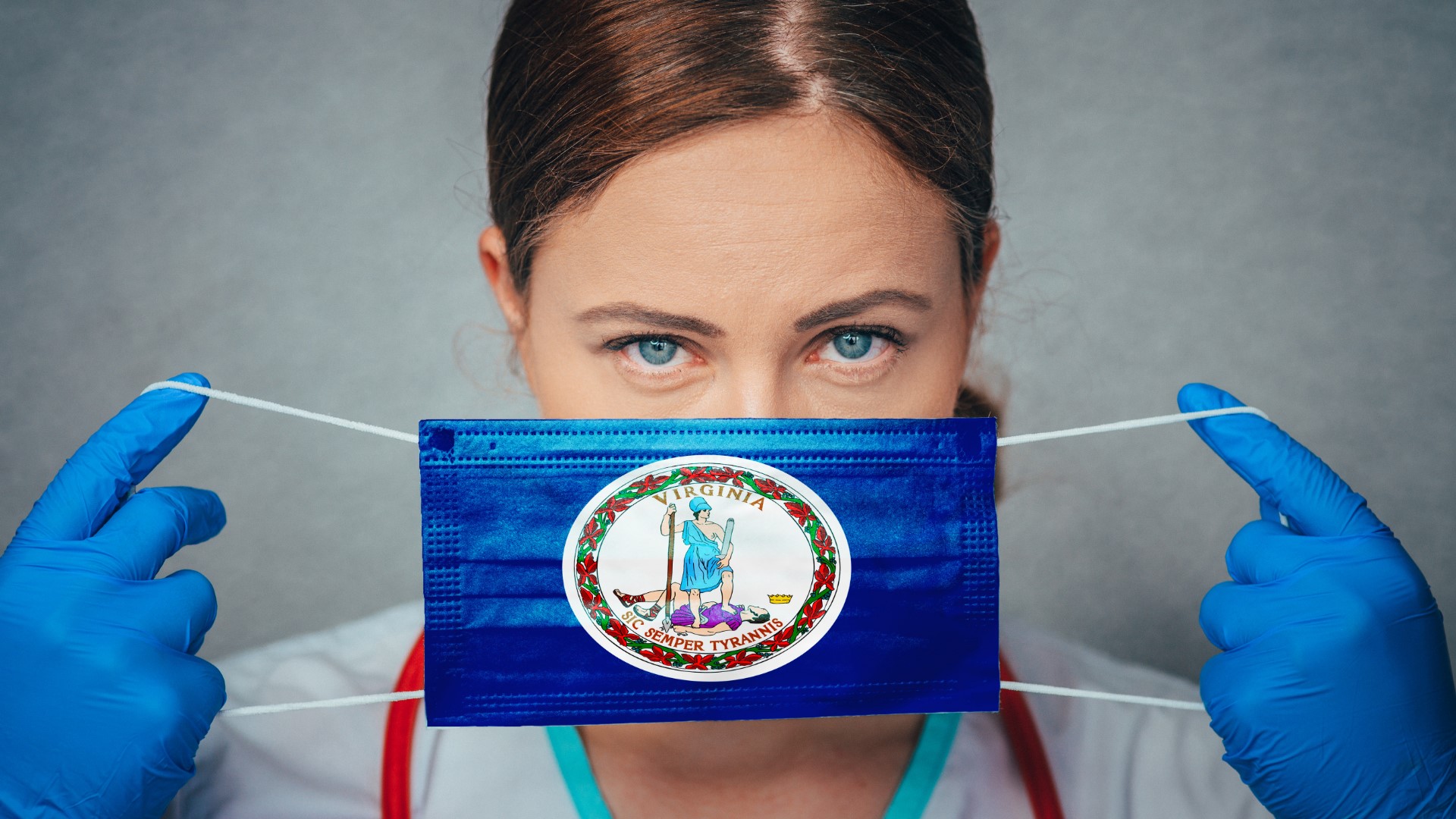WASHINGTON — Editor's note: This story was originally published June 10, 2021 and was updated July 6, 2021.
In May, Virginia turned a big COVID-19 corner. The first was on May 14 when Virginia Governor Ralph Northam lifted the state's mask mandate, then again on May 28 when capacity and distancing restrictions in businesses and public spaces ended.
Then on June 30, the Governor lifted Virginia's State of Emergency after more than 15 months.
“Virginia has an anti-masking law, on June 30th the State of Emergency here ends," Verify Viewer Laurie asked the Verify team in early June. "Will that make wearing a mask in Virginia illegal?”
Laurie is asking about Virginia law § 18.2-422, where, except in certain circumstances, it's illegal for anyone 17 or older to wear a mask with the intent to conceal their identity.
THE QUESTION
When Virginia lifts its state of emergency, will it be illegal to wear a mask to protect against COVID-19, because of the state's anti-mask law?
THE ANSWER
The 'intent provision' in the anti-mask law makes prosecution unlikely, according to our expert.
OUR SOURCES
- Brian Szmak- Criminal Defense Attorney at the Law Office of Samuel C. Moore, PLLC
- Virginia law § 18.2-422
- Office of Governor Ralph Northam- spokesperson, Executive Order 79
WHAT WE FOUND
Virginia is one of several states in the U.S. with laws against wearing masks.
"Frankly, these anti-masking laws in purpose, were in large part intended to react to, frankly the KKK and similar types of hate groups," Brian Szmak said.
This Virginia law has a very specific provision baked in: the person must be wearing a mask with the intent to conceal their identity.
Here's that provision:
"It shall be unlawful for any person over 16 years of age to, with the intent to conceal his identity, wear any mask, hood or other device whereby a substantial portion of the face is hidden or covered so as to conceal the identity of the wearer, to be or appear in any public place, or upon any private property in this Commonwealth without first having obtained from the owner or tenant thereof consent to do so in writing."
It would therefore be difficult, Szmak explained, to prove that a person violated the law without proving this specific intent.
"When that comes down to be proven, it's usually through context of, well, you were wearing a white hood at a KKK rally and shouting at people, or you were wearing a ski mask in a bank," Szmak said. "But wearing a regular mask while you walk your dog, I think is different. It makes it much harder to prove that intent if someone even wanted to prosecute for it.”
The law also provides a pretty specific exemption for those with a "medical necessity" for wearing the mask, and who also carry a doctor's note explaining "the date on which the wearing of the device will no longer be necessary."
More broadly though, the anti-mask statute includes an exception during a state of emergency, where there’s an explicit waiver of the law and a clear end date.
A spokesperson for Governor Northam told us in June, "we continue to explore options for folks who want or need to wear a mask after then and will be sharing more information soon.”
Even though the emergency order has been waiving the anti-mask law as it pertains to medical masks, respirators and other COVID face coverings, the law has been and will continue to be in full effect for masks that are not for these medical purposes.
"The waiver applies to medical uses," Szmak said. "So it is now not legal to wear a mask while you rob a bank...the law isn't just gone in its entirety."
So while we can’t verify what the governor’s next move will be, our expert believes a prosecutor would have a hard time proving that a medical mask used to protect against COVID-19 violates the anti-mask law.
"I would be very surprised to see somebody get arrested for this, let alone get actually prosecuted and certainly not convicted," Szmak said.
The District of Columbia also has an anti-mask law, where it only applies when someone is trying to hide their identity with the intent to intimidate or harass someone else.
That law has been temporarily repealed by emergency legislation which will last until August 1st.


